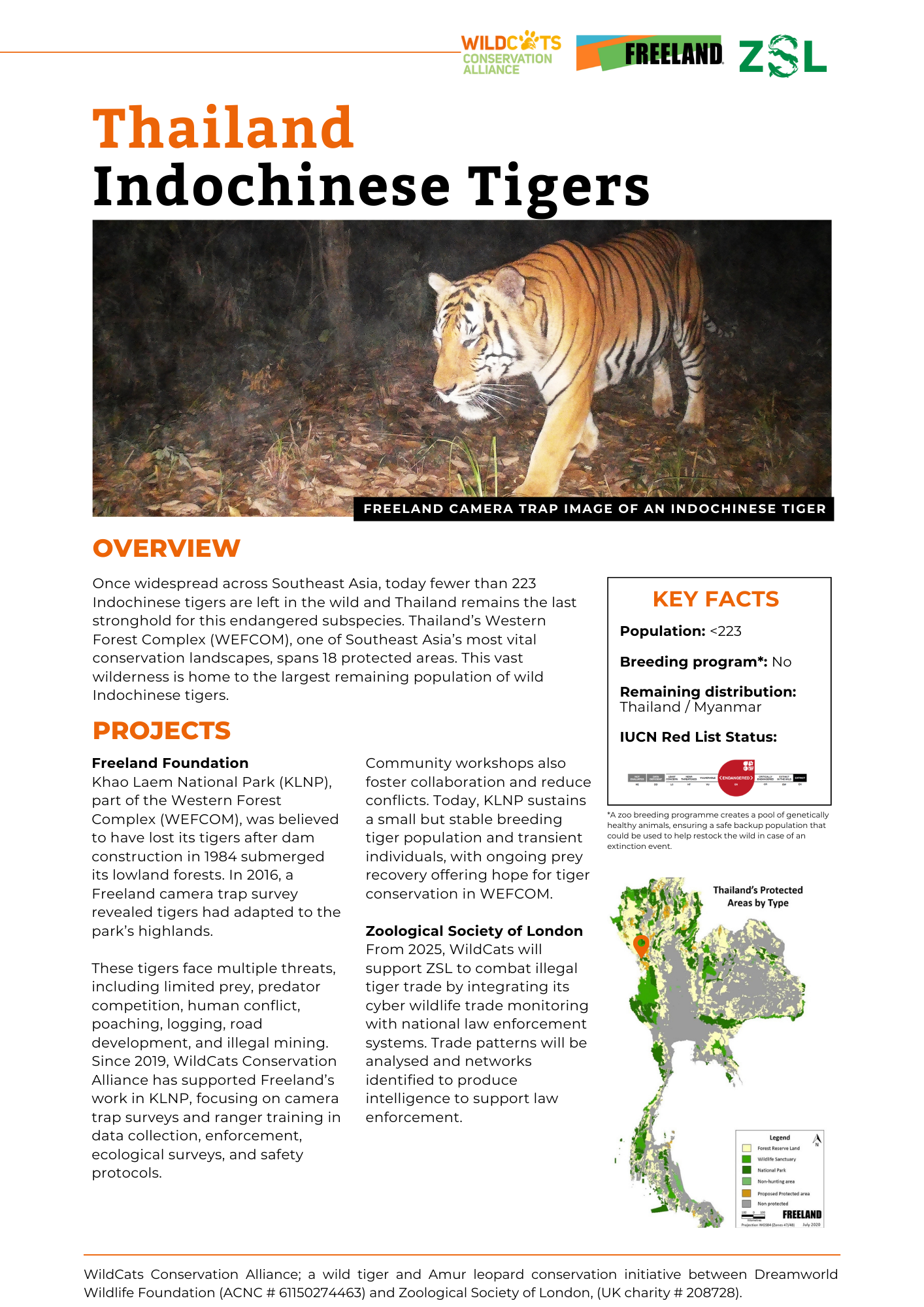Implementing Partner:
Zoological Society of London (ZSL)
Project name:
Intelligence Response for Combatting Tiger and Wildlife Crime (IRCT)
Location:
Thailand’s Western Forest Complex (WEFCOM)
Goal:
This project aims to enhance Thailand’s ability to detect and disrupt tiger trafficking networks
- Objective 1: Integrate tiger related illegal wildlife trade (IWT) into ZSL’s digital surveillance system within one year, increasing tiger online detections by 20% from the existing baseline from
previous ZSL Thailand online monitoring work. - Objective 2: Identify two trafficking networks in digital media related to tiger trade, while analysing trade volumes and trends to inform targeted enforcement within 1 year. This will build on existing efforts.
- Objective 3: Conduct one workshop by project end on tiger trafficking and wildlife crime information sharing to foster collaboration between NGOs and law enforcement within 1 year.
- Objective 4: Produce five intelligence packages within one year to aid law enforcement in investigations and track their responses, providing recommendations for effective sentencing.


